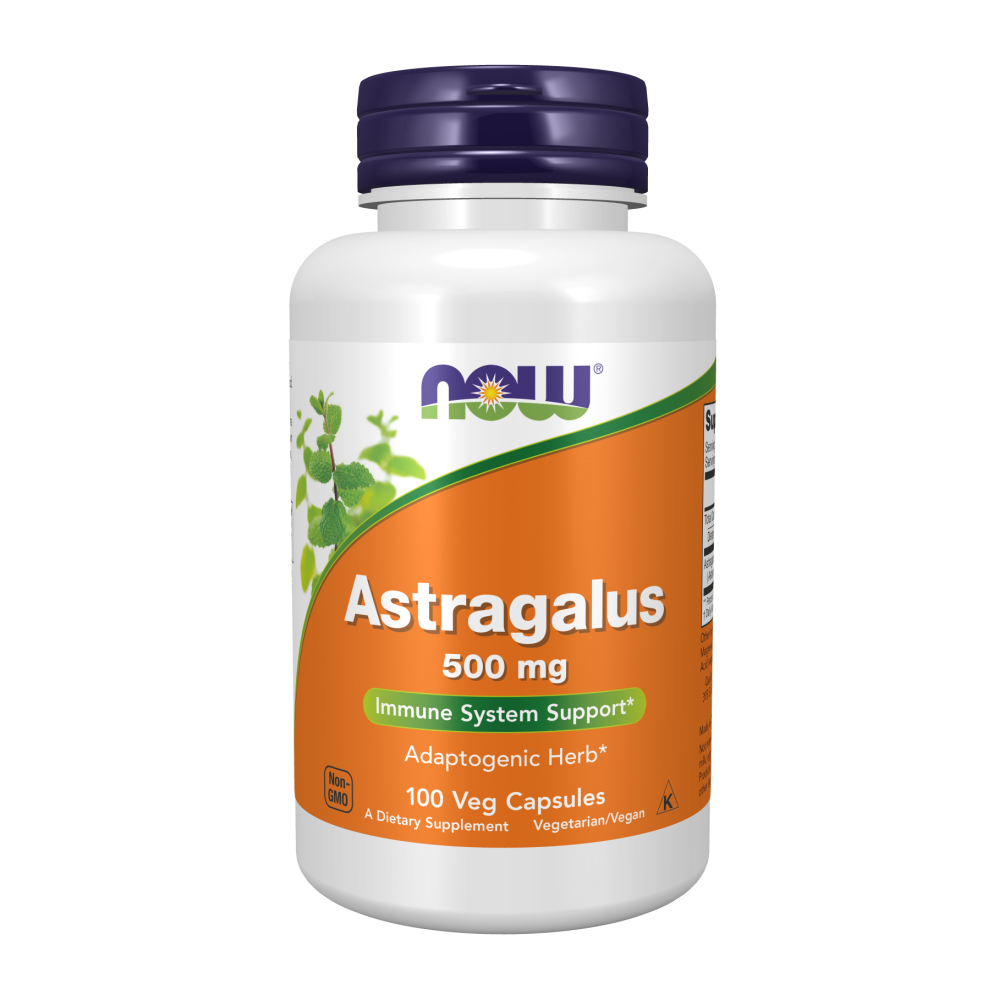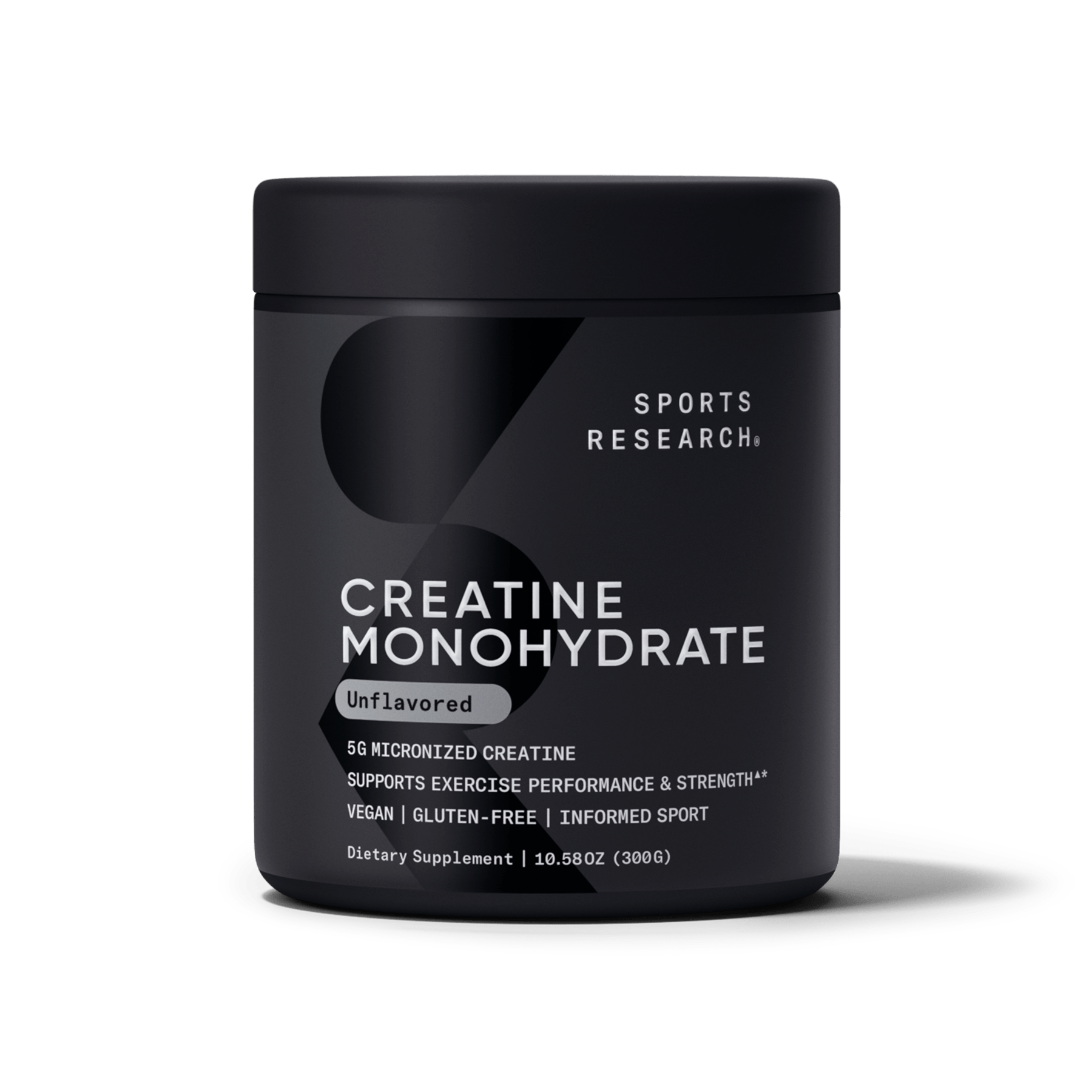
KEY TAKEAWAYS:
- Each of the eight B-complex vitamins plays a unique role in the body, and can be found mainly in meats and grains
- A B-complex supplement is an easy way to make sure you’re getting adequate amounts of all the B-vitamins, in a form that is easiest for your body to digest.
When it comes to the B-complex vitamins, chances are that you know some of them, whether it’s by their numerical name – ie. vitamin B12 – or another name, like cobalamin.
There are eight B-complex vitamins, each with a unique purpose on a cellular level. Let’s take a look at what each one does, where you can find it in your diet, and supplements to help you fill in the gaps.
VITAMIN B1 (THIAMIN)
BENEFITS
Thiamin plays a critical role in energy metabolism, and therefore, in the growth and development of cells.* Only a small amount of this vitamin can be stored in the liver and it can be used up rapidly, so it must be replenished daily.[1]
FOOD SOURCES
Thiamin is found naturally in meats, fish, and whole grains. It is also often added to breads, cereals, and baby formulas. Other sources of vitamin B1 include: beans, lentils, green peas, sunflower seeds, and yogurt.[2] Interestingly, heating foods can reduce their thiamin content.[3]
THIAMIN QUICK FACT
Symptoms of thiamin deficiency were first recorded in ancient texts of Chinese medicine, but the symptoms were not connected with diet until the late 19th century. In 1884, a Japanese physician found high rates of illness and death among sailors eating a limited diet of rice. When given a more varied diet of beans, meat, and grains, the illness disappeared.[4]
VITAMIN B1 SUPPLEMENTS
VITAMIN B2 (RIBOFLAVIN)
BENEFITS
Vitamin B2, or riboflavin, is a key component of coenzymes involved with the growth, development, and function of cells in your body.* It also plays a key role in turning the food you eat into the energy you need.* Most riboflavin is used immediately and not stored by the body, so excess amounts are excreted in urine.[5]
FOOD SOURCES
Riboflavin is found mostly in meats like lean beef and pork, but can also be found in dairy milk, yogurt, fortified cereal and bread, almonds, and spinach.
RIBOFLAVIN QUICK FACT
One of the reasons you don’t see dairy milk in glass bottles anymore is due to riboflavin. If the vitamin is exposed to too much light, it can be deactivated from its usable form.[6]
VITAMIN B2 SUPPLEMENTS
VITAMIN B3 (NIACIN)
BENEFITS
Vitamin B3, or niacin, works with more than 400 enzyme systems for various reactions. Niacin helps convert nutrients from food into energy, as it’s part of a coenzyme that’s needed for protein and carbohydrate metabolism .[7]*
FOOD SOURCES
Niacin deficiencies are rare, as it can be found in many foods, including both plants and animals. Common sources include poultry, beef, fish, legumes, brown rice, and bananas.
NIACIN QUICK FACT
Corn is naturally high in niacin, but it is bound to carbohydrates that make it difficult for the body to absorb. However, when corn undergoes food processing steps – as in tortilla making – the niacin becomes absorbable.[8]
VITAMIN B3 SUPPLEMENTS
- SolgarⓇ Niacin (Vitamin B3) 100 mg Tablets
- SolgarⓇ Niacin (Vitamin B3) 500 mg Vegetable Capsules
- SolgarⓇ No-Flush Niacin 500 mg Vegetable Capsules
VITAMIN B5 (PANTOTHENIC ACID)
BENEFITS
Like other B-vitamins, vitamin B5, or pantothenic acid, helps turn your food into energy, especially making and breaking down fats.[9]*
FOOD SOURCES
Vitamin B5 is found in almost all plant and animal foods to some degree, because the vitamin is found in all living cells. Some of the best sources of vitamin B5 are beef, chicken, fortified cereals, mushrooms, avocado, potatoes, nuts, seeds, and oats.
VITAMIN B5 QUICK FACT
The name “pantothenic” derives from the Greek pantos, meaning “from everywhere,” because it can be found (even in small amounts) in almost all foods.
VITAMIN B5 SUPPLEMENTS
VITAMIN B6 (PYRIDOXINE)
BENEFITS
Vitamin B6, or pyridoxine, is a water-soluble vitamin found in many foods. The body needs vitamin B6 for more than 100 enzyme reactions involved in energy metabolism, including the breakdown of proteins, carbohydrates, and fats.* It also supports nervous system health.[10]*
FOOD SOURCES
Some foods that are rich in vitamin B6 include tuna, salmon, chickpeas, poultry, bananas, papayas, and dark leafy greens.[11]
VITAMIN B6 SUPPLEMENTS
- SolgarⓇ Vitamin B6 – 25 mg, 50 mg, or 100 mg
- SolgarⓇ Magnesium with Vitamin B6
VITAMIN B7 (BIOTIN)
BENEFITS
You may recognize vitamin B7 by its more common name, biotin. Biotin is well known for its support of healthy skin, nails and hair, and plays a vital role in assisting enzymes in breaking down proteins, carbohydrates, and fats.* It also helps regulate signals sent by cells and the activity of genes.[12]*
FOOD SOURCES
Foods that contain biotin include eggs, salmon, avocados, pork, sweet potato, nuts, and seeds.
BIOTIN QUICK FACT
If you’re someone who enjoys raw eggs – whether in mayonnaise, eggnog, or salad dressing – you may want to reconsider. A protein in raw eggs called avidin can bind to biotin, preventing its absorption. Cooked eggs are not an issue because avidin is broken down when heated. [13]
BIOTIN SUPPLEMENTS
- SolgarⓇ Biotin – 300 mcg, 1000 mcg, 5000 mcg, 10 000 mcg
VITAMIN B9 (FOLATE / FOLIC ACID)
BENEFITS
Vitamin B9, or folate, is a water-soluble vitamin that helps to form genetic material such as DNA and RNA.* It plays a key role in maintaining healthy homocysteine levels already within the normal range.* Homocysteine is an amino acid found in the blood. High levels are considered to affect the function of the cardiovascular system. Folate is also extremely important during pregnancy. Healthful diets with adequate folate may reduce a woman’s risk of having a child with a brain or spinal cord birth defect.
FOOD SOURCES
Folate is present in a wide variety of foods, but the form that is added to foods and supplements – folic acid – is better absorbed by the body. Good sources of folate include dark green leafy vegetables, beans, peanuts, sunflower seeds, and seafood.
FOLATE QUICK FACT
Don’t get confused – there are still only eight B-complex vitamins, even though folate is also called vitamin B9.
VITAMIN B9 SUPPLEMENTS
VITAMIN B12 (COBALAMIN)
BENEFITS
Vitamin B12, or cobalamin, is a nutrient that helps keep the body’s nerve and blood cells healthy and helps make DNA. Vitamin B12 is great for supporting daily energy.* Vitamin B12 deficiency can cause a type of anemia that makes people tired and weak. In the U.S., vitamin B12 deficiency generally occurs in under 1% of children and teens but can increase up to 2% in older individuals. Subclinical deficiencies can be much more common. Vitamin B12 in foods is bounded to the protein you eat, and then is released in the stomach into its free form. Vitamin B12 supplements contain B12 in its free form already, so that it is more easily absorbed.
FOOD SOURCES
Vitamin B12 is found in a variety of animal foods, such as fish, red meat, eggs, poultry, and dairy products.
VITAMIN B12 QUICK FACT
People who eat a vegan diet are often told to eat nutritional yeast to get their daily dose of vitamin B12. However, yeast does not naturally contain this vitamin and will only be present if fortified with it.
VITAMIN B12 SUPPLEMENTS
- SolgarⓇ Sublingual Liquid B12
- SolgarⓇ Vitamin B12 – various dosages
- SolgarⓇ Brewer’s Yeast 7 ½ Grains Tablets with Vitamin B12
MORE B-COMPLEX VITAMIN SUPPLEMENTS
SolgarⓇ B-Complex “100”: This formula offers all your B-complex vitamins in one easy supplement, with 100 mg of almost all B-complex vitamins.
SolgarⓇ B-Complex with Vitamin C Stress Formula: This vegan, gluten-free, dairy-free, and non-GMO supplement all eight B-complex vitamins, as well as 500 mg of vitamin C.
SUMMING IT UP
Energy metabolism, prenatal health, DNA creation…the B-complex vitamins do it all.* Although they can be found in your diet, the easiest way to make sure you’re getting as much as you need of all eight vitamins is by taking a B-vitamin supplement.
For more of the latest health and wellness info, as well as exclusive deals and promotions, subscribe to our newsletter!
*These statements have not been evaluated by the Food and Drug Administration. These products are not intended to diagnose, treat, cure, or prevent any disease.
The information provided on this site is intended for your general knowledge only and is not a substitute for professional medical advice or treatment for specific medical conditions. Always seek the advice of your physician or another qualified healthcare provider with any questions you may have regarding a medical condition. The information on this website is not intended to diagnose, treat, cure, or prevent any disease. Never disregard medical advice or delay in seeking it because of something you have read on the Solgar® site.





